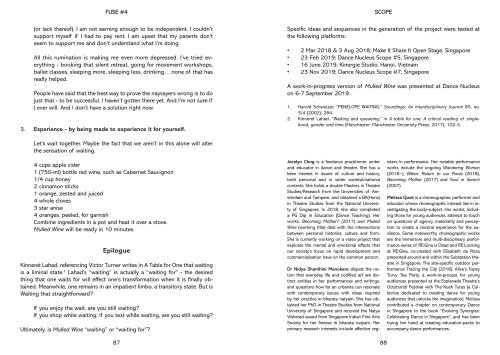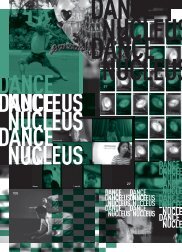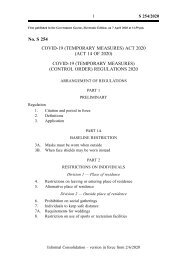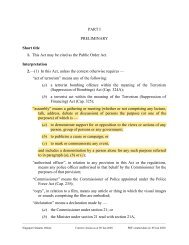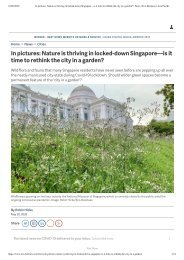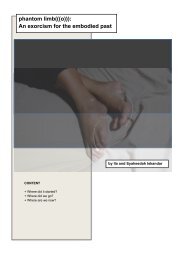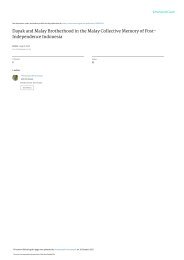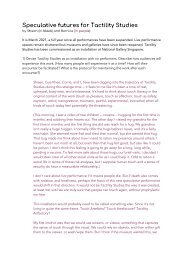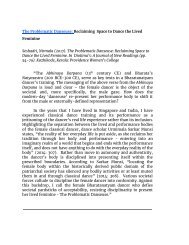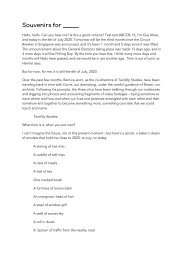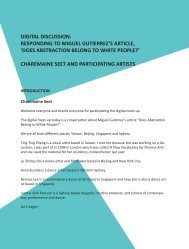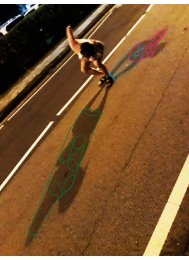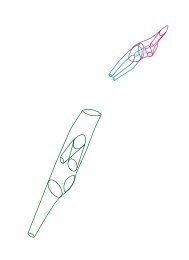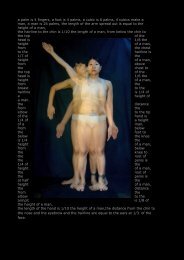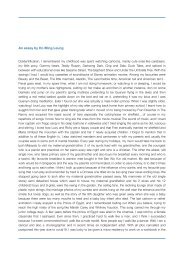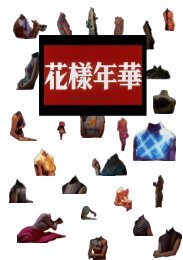FUSE#4
FUSE is a bi-annual publication that documents the projects at Dance Nucleus .
FUSE is a bi-annual publication that documents the projects at Dance Nucleus .
Create successful ePaper yourself
Turn your PDF publications into a flip-book with our unique Google optimized e-Paper software.
FUSE #4<br />
(or lack thereof). I am not earning enough to be independent. I couldn’t<br />
support myself if I had to pay rent. I am upset that my parents don’t<br />
seem to support me and don’t understand what I’m doing.<br />
All this rumination is making me even more depressed. I’ve tried everything<br />
- booking that silent retreat, going for movement workshops,<br />
ballet classes, sleeping more, sleeping less, drinking… none of that has<br />
really helped.<br />
People have said that the best way to prove the naysayers wrong is to do<br />
just that - to be successful. I haven’t gotten there yet. And I’m not sure if<br />
I ever will. And I don’t have a solution right now.<br />
3. Experience - by being made to experience it for yourself.<br />
SCOPE<br />
Specific ideas and sequences in the generation of the project were tested at<br />
the following platforms:<br />
• 2 Mar 2018 & 3 Aug 2018; Make It Share It Open Stage, Singapore<br />
• 23 Feb 2019; Dance Nucleus Scope #5, Singapore<br />
• 16 June 2019; Kinergie Studio, Hanoi, Vietnam<br />
• 23 Nov 2019; Dance Nucleus Scope #7, Singapore<br />
A work-in-progress version of Mulled Wine was presented at Dance Nucleus<br />
on 6-7 September 2019.<br />
1. Harold Schweizer, “PENELOPE WAITING,” Soundings: An Interdisciplinary Journal 85, no.<br />
3/4 (2002): 284.<br />
2. Kinneret Lahad, “Waiting and queueing,” in A table for one: A critical reading of singlehood,<br />
gender and time (Manchester: Manchester University Press, 2017), 102-3.<br />
Let’s wait together. Maybe the fact that we aren’t in this alone will alter<br />
the sensation of waiting.<br />
4 cups apple cider<br />
1 (750-ml) bottle red wine, such as Cabernet Sauvignon<br />
1/4 cup honey<br />
2 cinnamon sticks<br />
1 orange, zested and juiced<br />
4 whole cloves<br />
3 star anise<br />
4 oranges, peeled, for garnish<br />
Combine ingredients in a pot and heat it over a stove.<br />
Mulled Wine will be ready in 10 minutes.<br />
Epilogue<br />
Kinneret Lahad, referencing Victor Turner writes in A Table for One that waiting<br />
is a liminal state. 2 Lahad’s “waiting” is actually a “waiting for” - the desired<br />
thing that one waits for will effect one’s transformation when it is finally obtained.<br />
Meanwhile, one remains in an impatient limbo, a transitory state. But is<br />
Waiting that straightforward?<br />
If you enjoy the wait, are you still waiting?<br />
If you shop while waiting; if you text while waiting, are you still waiting?<br />
Ultimately, is Mulled Wine “waiting” or “waiting for”?<br />
Jocelyn Chng is a freelance practitioner, writer<br />
and educator in dance and theatre. She has a<br />
keen interest in issues of culture and history,<br />
both personal and in wider societal/national<br />
contexts. She holds a double Masters in Theatre<br />
Studies/Research from the Universities of Amsterdam<br />
and Tampere, and obtained a BA(Hons)<br />
in Theatre Studies from the National University<br />
of Singapore. In 2018, she also completed<br />
a PG Dip in Education (Dance Teaching). Her<br />
works, Becoming Mother? (2017) and Mulled<br />
Wine (working title) deal with the intersections<br />
between personal histories, culture and form.<br />
She is currently working on a video project that<br />
explores the mental and emotional effects that<br />
our society’s focus on rapid development and<br />
commercialisation have on the common person.<br />
Dr Nidya Shanthini Manokara dispels the notion<br />
that everyday life and codified art are distinct<br />
entities in her performances and writings,<br />
and questions how far an urbanite can resonate<br />
with contemporary issues with ideas inspired<br />
by her practice in bharata natyam. She has obtained<br />
her PhD in Theatre Studies from National<br />
University of Singapore and received the Natya<br />
Visharad award from Singapore Indian Fine Arts<br />
Society for her finesse in bharata natyam. Her<br />
primary research interests include affective registers<br />
in performance. Her notable performance<br />
works include the ongoing Wandering Women<br />
(2018~), Bitten: Return to our Roots (2018),<br />
Becoming Mother (2017) and Soul in Search<br />
(2007).<br />
Melissa Quek is a choreographer, performer and<br />
educator whose choreographic interest lies in investigating<br />
the body-subject. Her works, including<br />
those for young audiences, attempt to touch<br />
on questions of agency, materiality and perception<br />
to create a visceral experience for the audience.<br />
Some noteworthy choreographic works<br />
are the Immersive and multi-disciplinary performance<br />
series of RE:Gina is Dead and RE:Looking<br />
at RE:Gina, co-created with Elizabeth de Roza<br />
presented around and within the Substation theatre<br />
in Singapore. The site-specific outdoor performance<br />
Tracing the City (2016). Alice’s Topsy<br />
Turvy Tea Party, a work-in-process for young<br />
audiences presented at the Esplanade Theatre’s<br />
Octoburst! Festival with The Kueh Tutus (a Collective<br />
dedicated to creating dance for young<br />
audiences that unlocks the imagination). Melissa<br />
contributed a chapter on contemporary Dance<br />
in Singapore to the book “Evolving Synergies:<br />
Celebrating Dance in Singapore”, and has been<br />
trying her hand at creating education-packs to<br />
accompany dance performances.<br />
87 88


